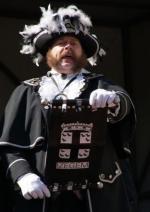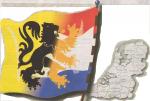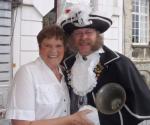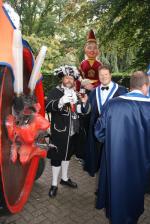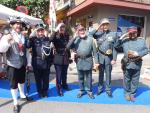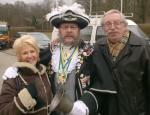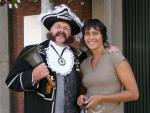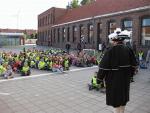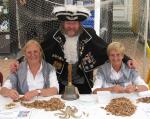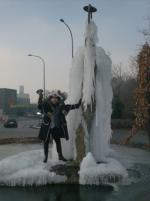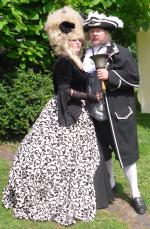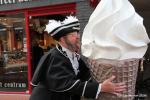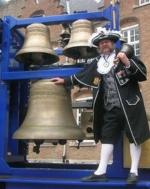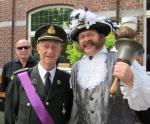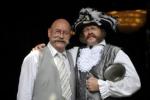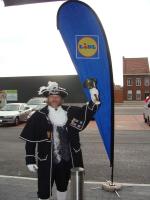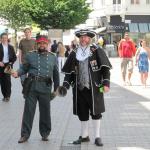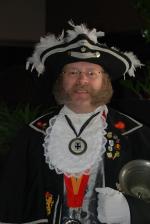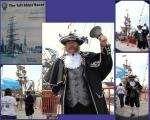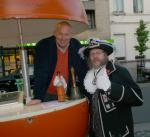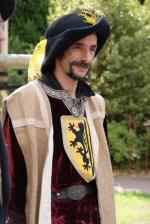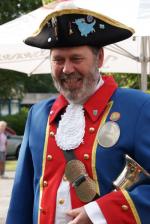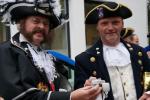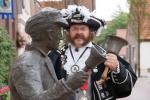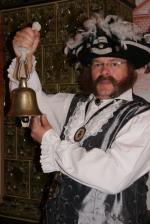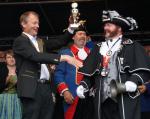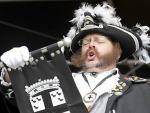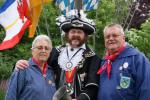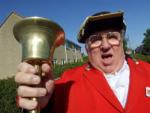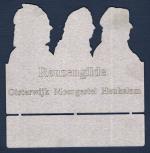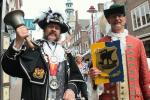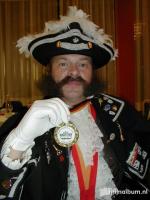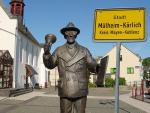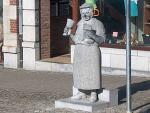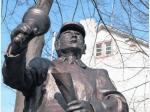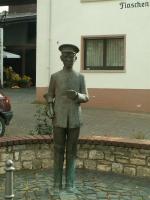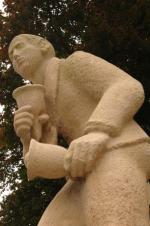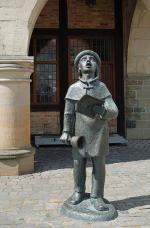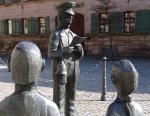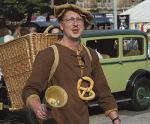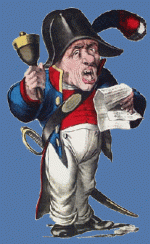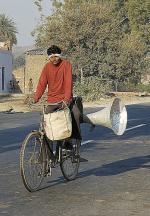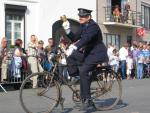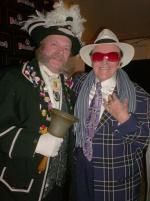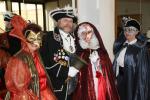Parr, Joseph - Town Crier of Derby
JOSEPH PARR was born in Derby in 1790. Little is known of his life and background, although he was once one of the most immediately recognised of Derby's citizens.
In the mid-nineteenth century he was Derby's town crier, described in a contemporary directory as 'Pindar and common crier of Derby. ' Although the role still exists in a number of towns and cities, it does so only as a novelty and tourist attraction, yet in Parr's time the position was considered fundamental to the spread of news and the making of important announcements to a town's citizens.
Although newspapers and broadsheets existed, many people were unable to either read or afford them, so verbal communication (traditionally at high volume) was considered the most effective way of disseminating information to the masses.
When standards of education improved as the Victorian age advanced, the need for a town crier diminished, and indeed Joseph Parr was the last in the original long line of criers for Derby. The position was resurrected in 1989 when Derby once again appointed a town crier, but on this occasion as little more than a civic curiosity and an ambassador for the city.
Perhaps the term 'Pindar' used to describe Parr should be explained.
Pindar was a Greek lyric poet who lived circa 518 BC to 438 BC - centuries later his name was still being attached to anyone with a particular talent for creating good poetry or amusing odes, the sort of thing a town crier would incorporate into his 'act' for entertaining effect.
Joseph Parr died in Derby in 1868, aged 78. His home had been in St. Alkmund' Church Yard. He is believed to have been a descendant of a decayed branch of a local family which had rented space in the Shambles since 1540 and had produced a mayor in 1723.
The picture of Parr shown here is a daguerrotype photograph taken circa 1859, when Parr was about 70. He wears the crier's 'uniform' and carries the bell with which he would noisily preface his announcements and proclamations.
|


